Ghana Food Journal: Drinks
When you’re in Ghana, you’re going to be drinking a lot. And I don’t mean “alcohol” … I’m talking replenishing, nourishing liquids of any sort, above all water. Because — you might have heard, or seen one of the 8129 times we’ve mentioned — Ghana is hot. And eventually, water won’t be enough… you’ll want other liquids to soak into your body, if just for a change of pace. Here are some of the beverages we consumed metric tons of, while in the country.
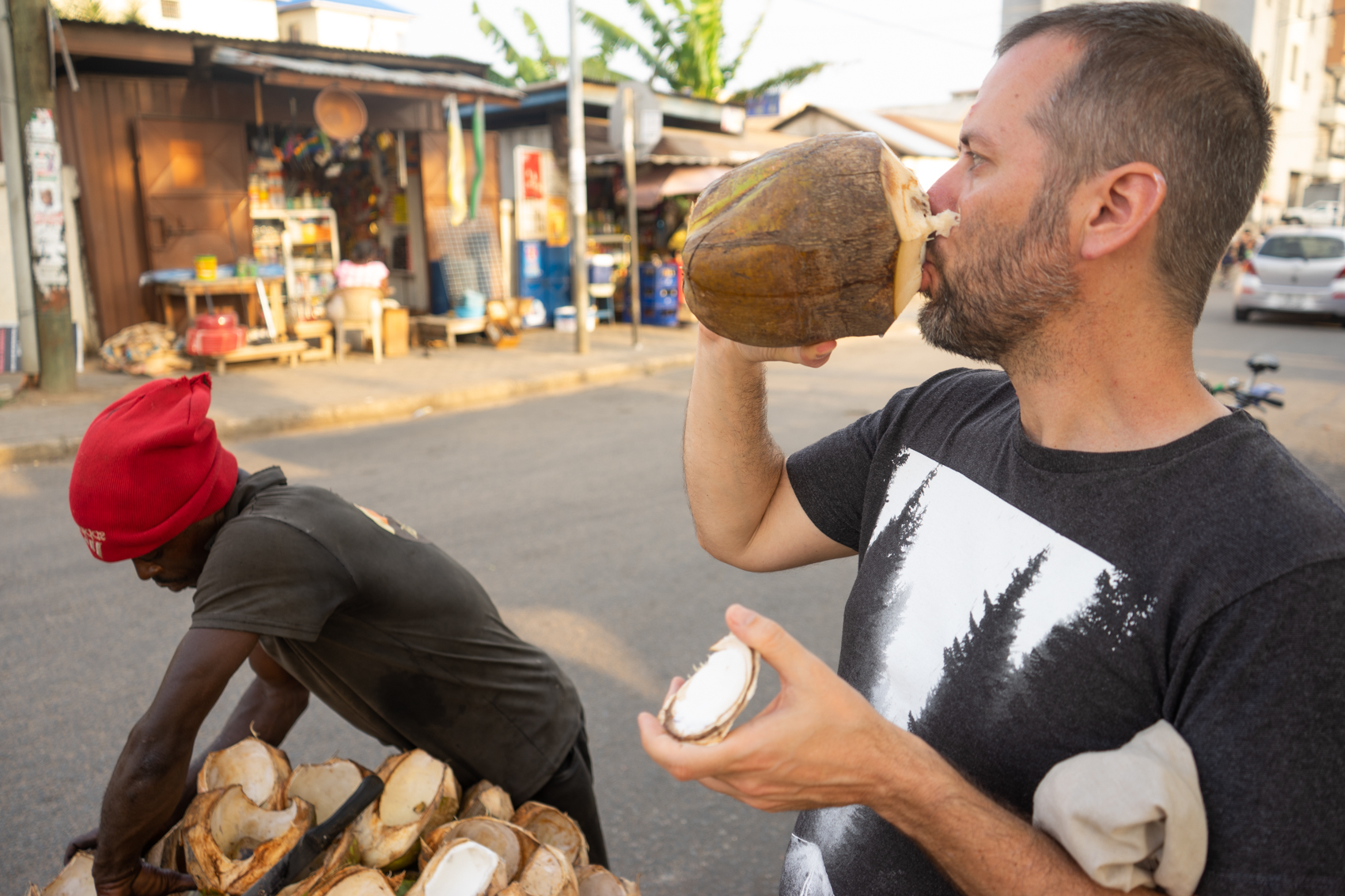
Pure Water
Why drink water when you can drink pure water?! Well, one reason might be that you have to squeeze pure water out of a small plastic bag, like a transparent udder. Ghanaians refer to the ubiquitous water bags as “pure water”, and drink from them constantly. At times, it seems everyone has a half-filled sack clutched between their teeth. Despite pure water’s popularity, we needed weeks before taking the plunge. There was just something about accepting this grubby bag from someone, and chewing open a little hole in the corner.
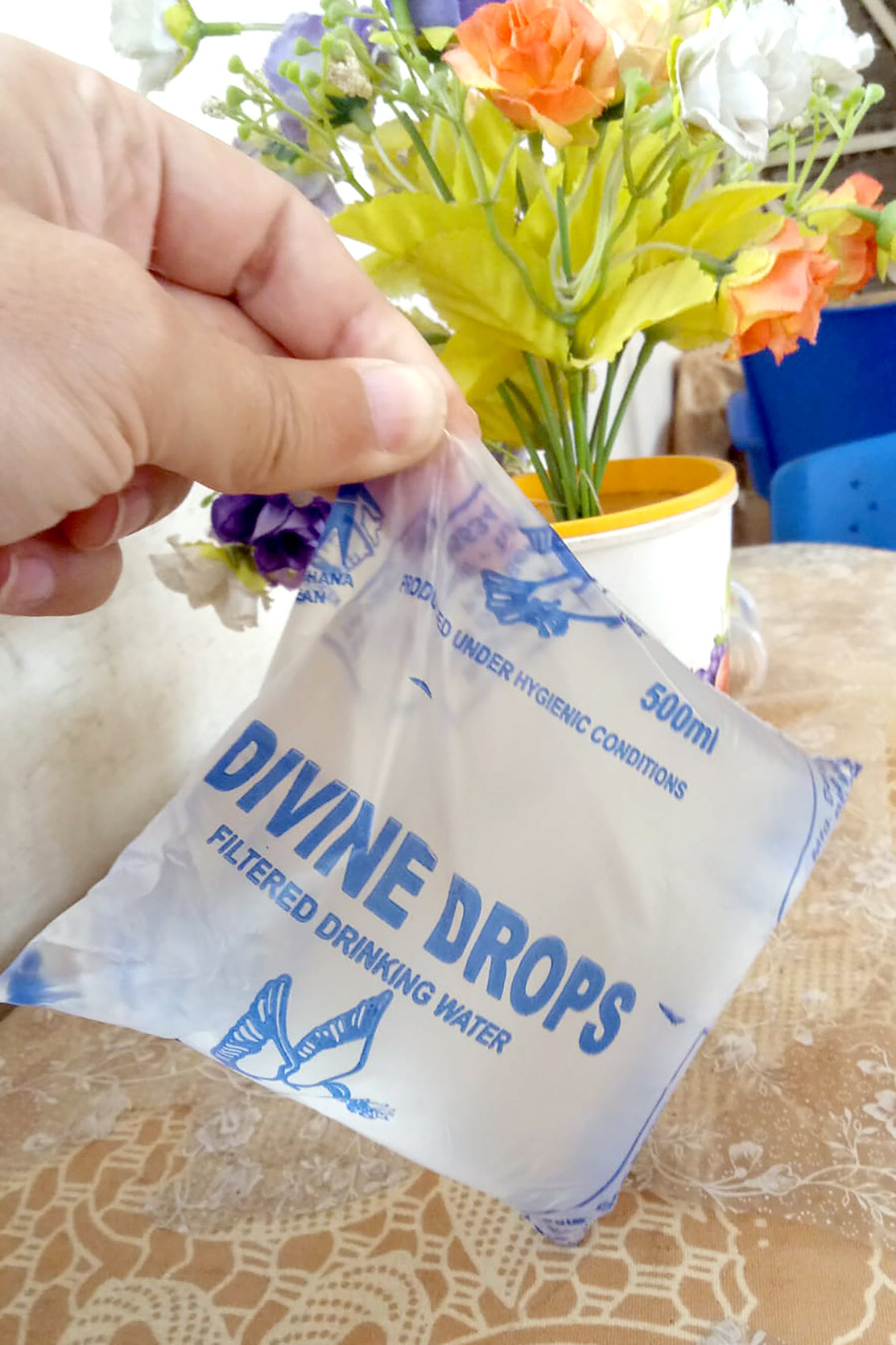
But we did grow accustomed to it, and eventually I came to prefer pure water over the bottled sort. First, it’s guaranteed to be fresh — whereas unscrupulous merchants can refill and re-cap bottles with tap water, pure water comes in sealed bags. Second, that price! You can get a bag for just a few cents. Third, it’s the right size — I didn’t want to carry around a bottle everywhere, and with pure water, I could chug down the equivalent of a large glass, and be on my way. Fourth, you can find it everywhere, and it’s always cold. Writing this description is making it sound so good… hissssss, hey ma’am! Four more bags of pure water, please!
Beer
We’re not normally huge beer guys, opting usually for wine when it’s time for a drink (we live in Spain for a reason!) But in Ghana, beer was a nightly ritual. Our days in Ghana were mostly awesome, they were also hectic, stressful, hot and tiring. Almost without exception. Plopping ourselves down at a bar and shedding off the day’s accumulated pressure with a cold beer was how we coped.
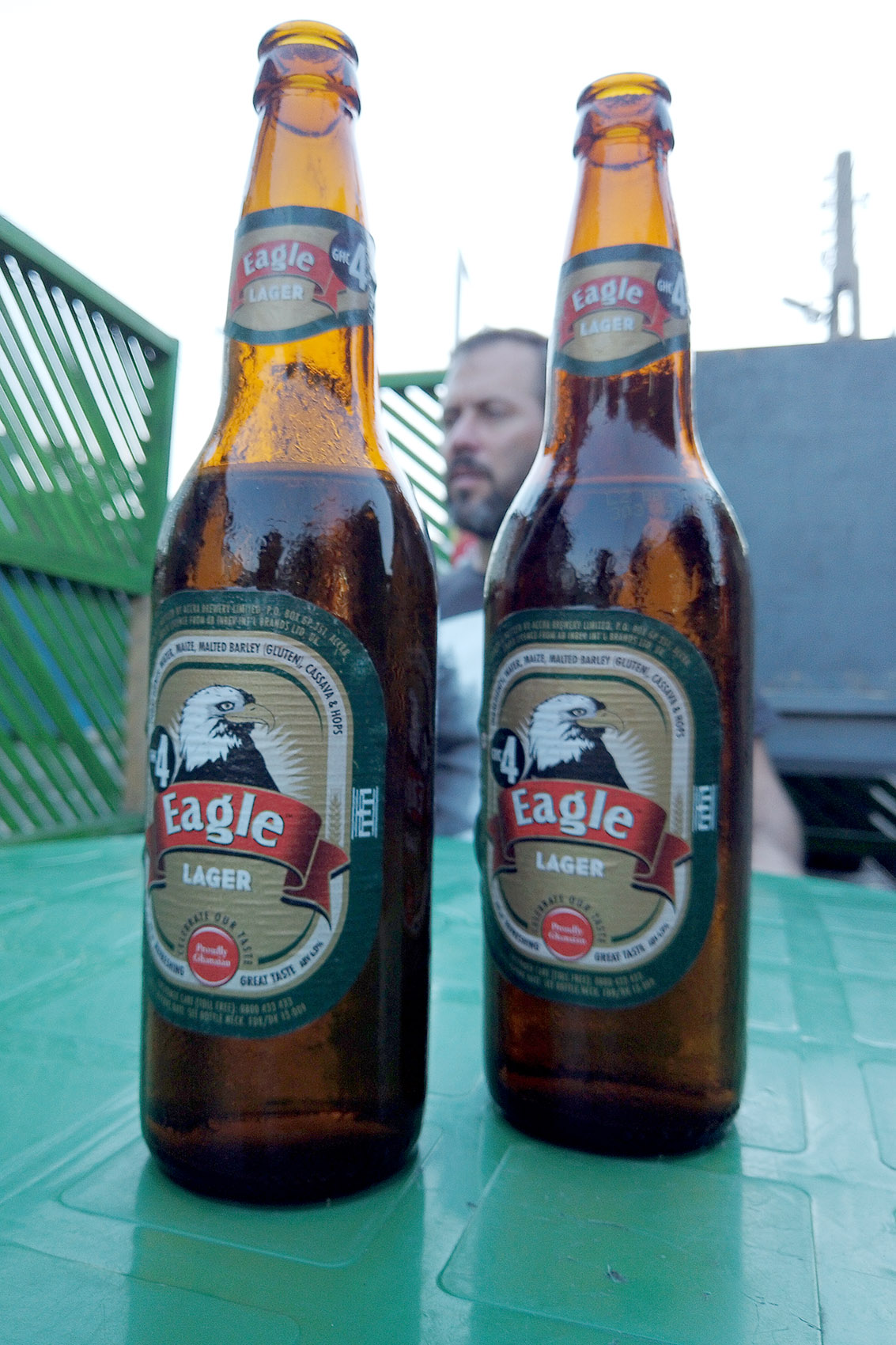
Ghanaian Beer isn’t going to win any international awards, but after living there for three months, we learned enough about it. Club Beer is by far the most popular and widely-available. You’d be hard-pressed to find an establishment that doesn’t sell it. But we preferred ABC, which apparently used to be huge, but then disappeared from the shelves. It’s been making a comeback in Accra, though you won’t find it anywhere else in the country. Star and Guilder are also-rans, which we drank occasionally, but didn’t love. Eagle, though, we ordered whenever possible: this is beer made with cassava root, and is super-delicious. We also liked Savannah, which is a cider.
Coconuts
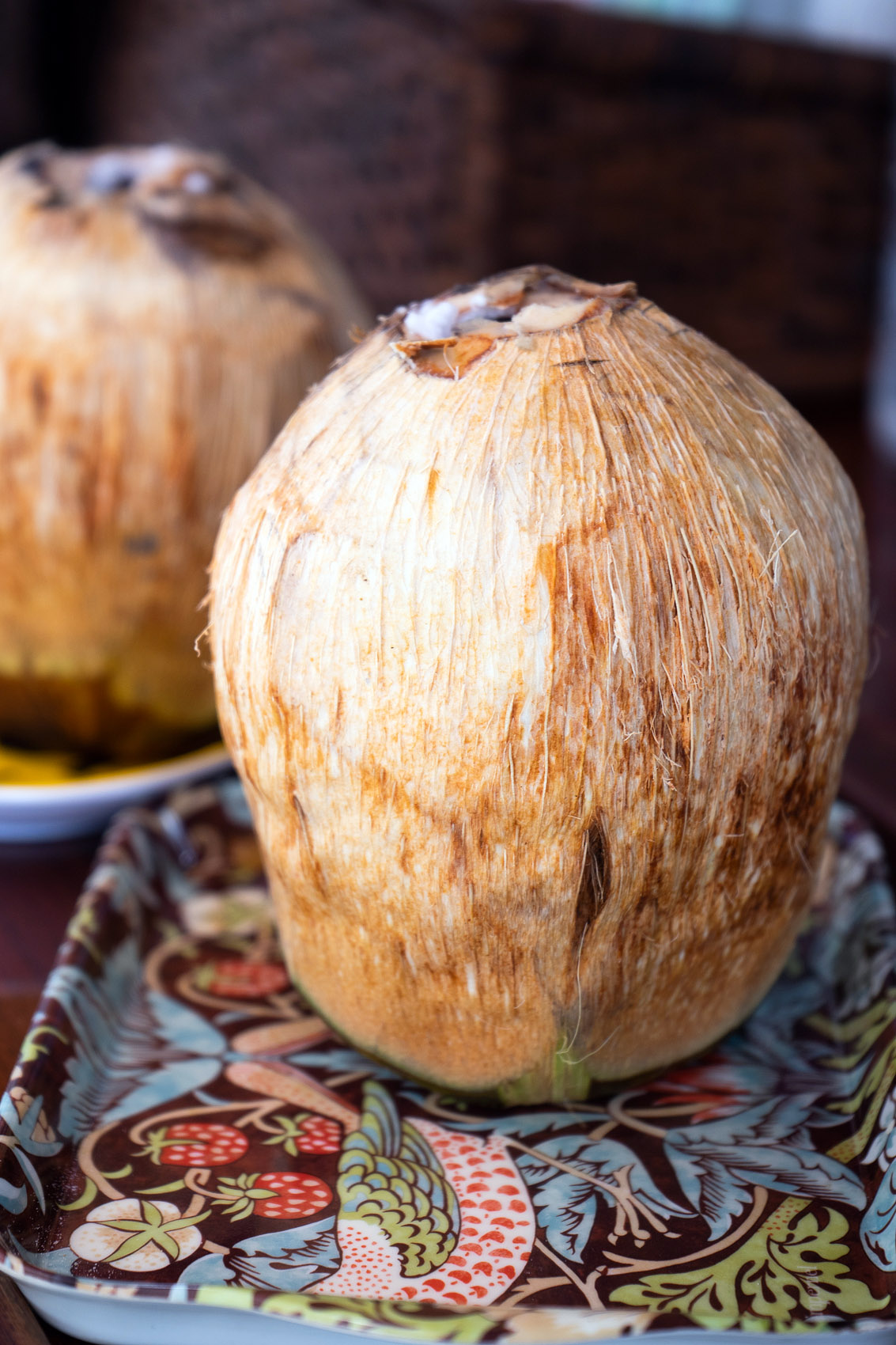
Sometimes, there’s nothing I want more than a fresh coconut. When you’ve spent the day plodding about, and you’ve been completely drained by the sun, the delicious and ultra-nutritious water from a coconut is the ultimate health food. As you’re drinking, it’s almost as though you can feel your cells being replenished with life force. In Ghana, you never have to go far before encountering a new machete-wielding guy pushing around a wheelbarrow of coconuts. We took advantage almost daily.
Moringa
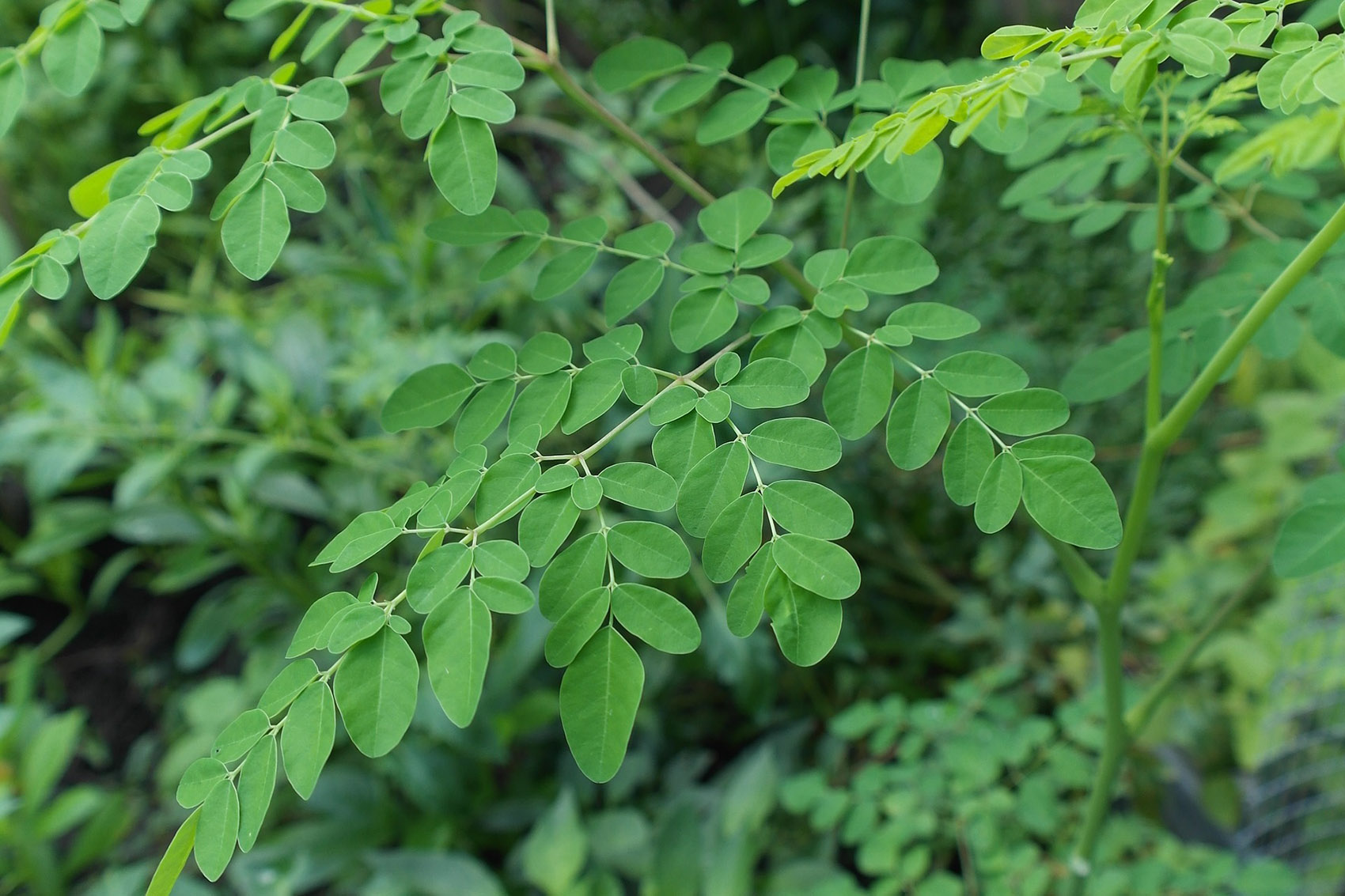
Moringa isn’t necessarily unique to Ghana — in fact, this plant is most well known in Asia and India. But it was here that we first discovered it. All sorts of health benefits are attributed to the drought-resistant Moringa tree, and the powder made from grinding its leaves is gaining popularity around the world as a type of superfood. We were eager to try it out, and found that it’s most palatable when mixed with pineapple juice. Ghana isn’t always the healthiest country to live in — with the pollution and regular diet of fried chicken and glutinous balls of goo. But perhaps the drinks, like moringa and coconut, balance the scales.
Sobolo
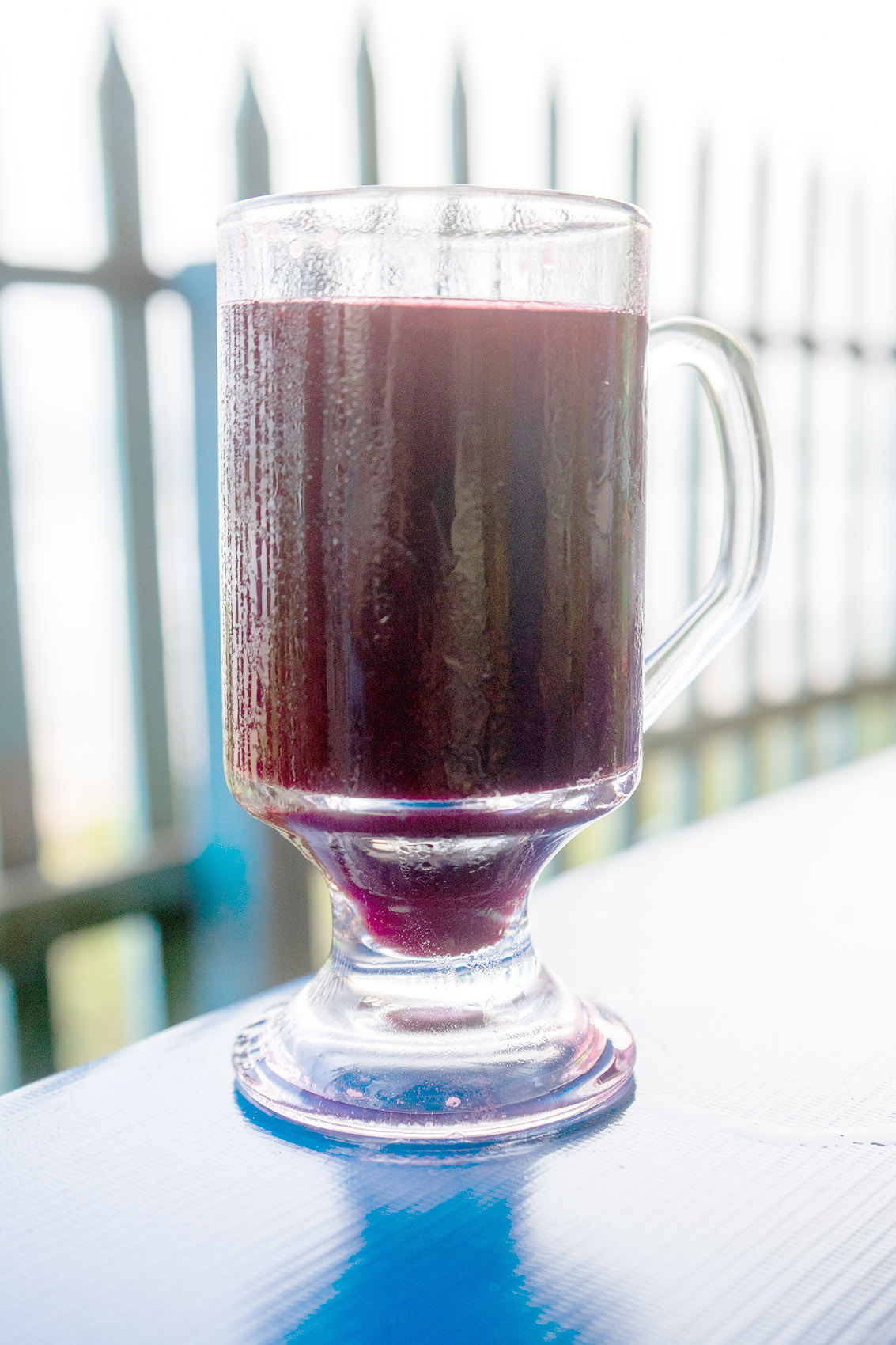
You usually find the dark-purple drink known as sobolo being sold in repurposed water bottles, along the side of the road. This is basically hibiscus juice, flavored with ginger and a lot of sugar, and is appreciated for its many health properties, such as lowering cholesterol and blood pressure. I don’t know, though… the one time we drank it, we felt immediately sicker. I don’t know if you can generally trust the roadside sellers to use clean water in their sobolo, and the amount of sugar can be shocking.
Palm Wine
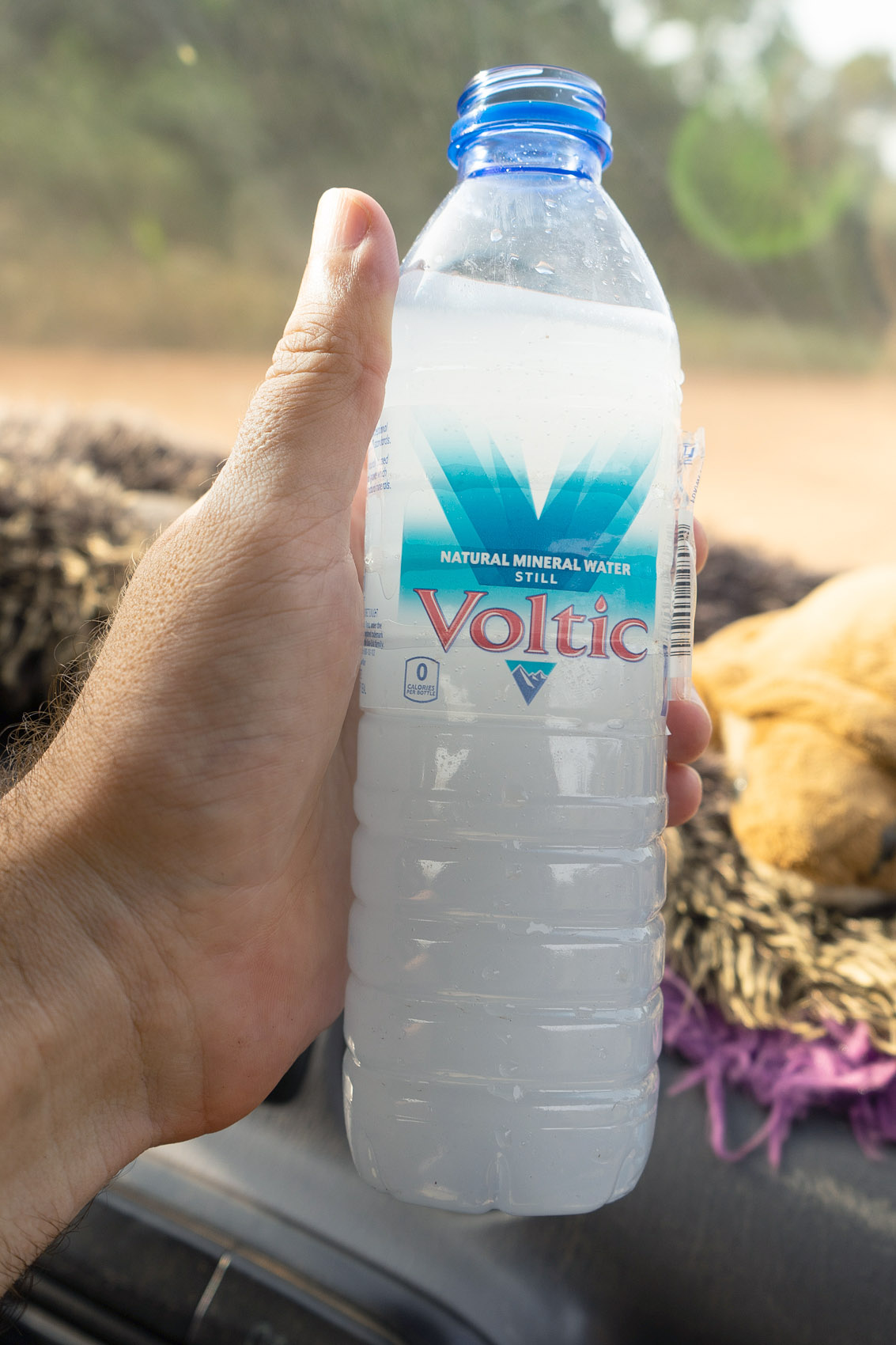
While in Sri Lanka, we discovered toddy — an alcoholic drink made from tapping palm trees and fermenting the sap. Ghana has a similar drink in palm wine. We didn’t necessarily love the toddy of Sri Lanka, and felt much the same about the Ghanaian variant. It probably depends on the establishment from which you buy it, but the palm wine we ended up with was only slightly alcoholic, sweet and fizzy. It tasted as though a little wine had been mixed with a huge amount of Sprite, and in fact I’m almost certain that’s what it was.
Bitters
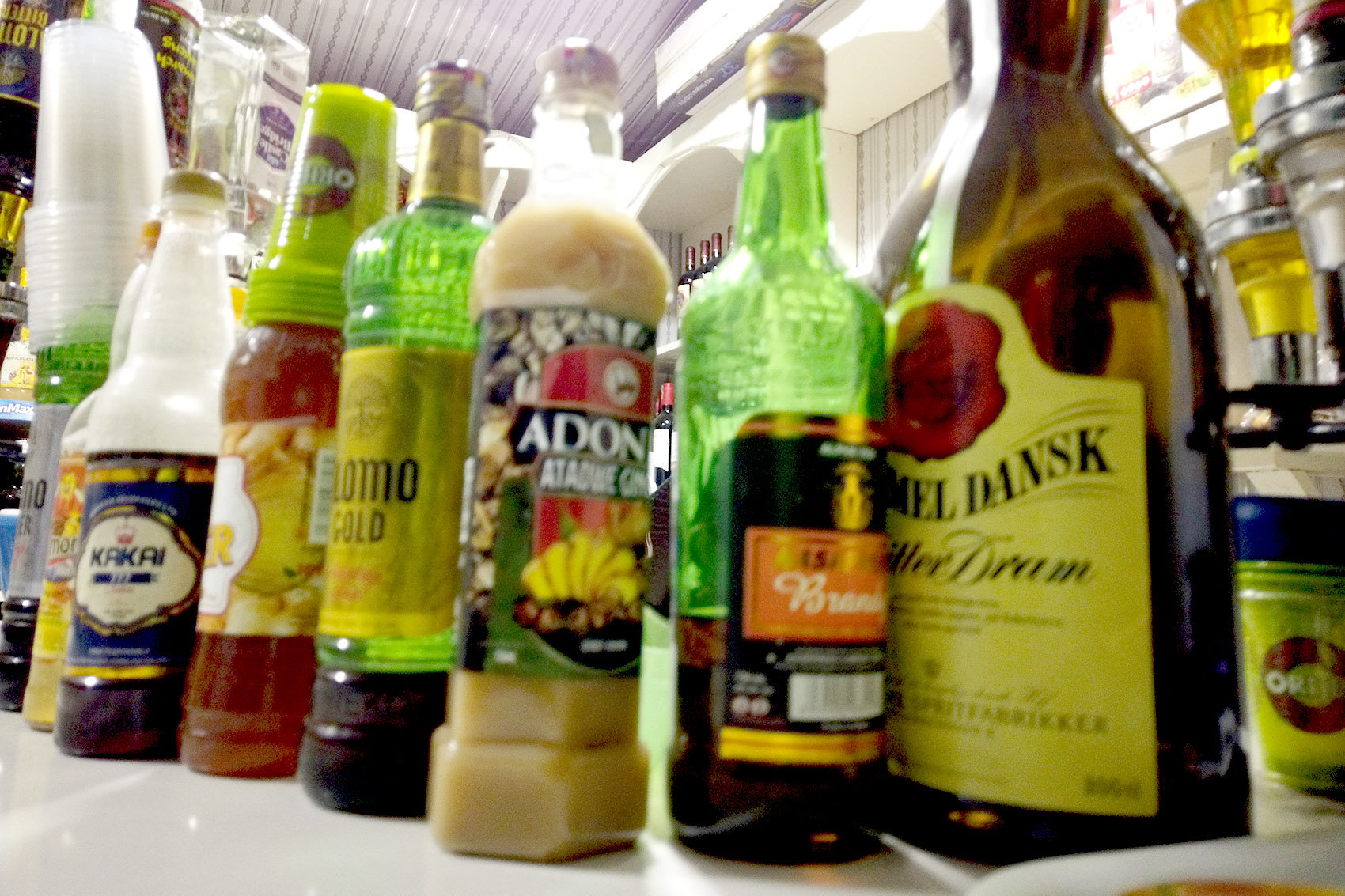
If Ghana’s billboards are to be believed, this country sure does love its bitters! The charge is led by Adonko Bitters, but there is a wide variety of brands to choose from, all of them served over ice, and for prices that are ridiculous even by local standards. In most bars, one cedi ($0.20) will get you a shot of bitters… and you’re not likely to need much more than a single shot.
The first time we ordered Adonko, the waitress was shocked — apparently, this is not a drink many obrunis go for. She couldn’t stop laughing, and eventually we became nervous about what we had just asked for. But the bitters were as expected: bitter. Well, and herby and very alcoholic. We didn’t let it become a habit, but at the end of an especially hard excursion, somehow that little dark brown glass always found its way to our table.
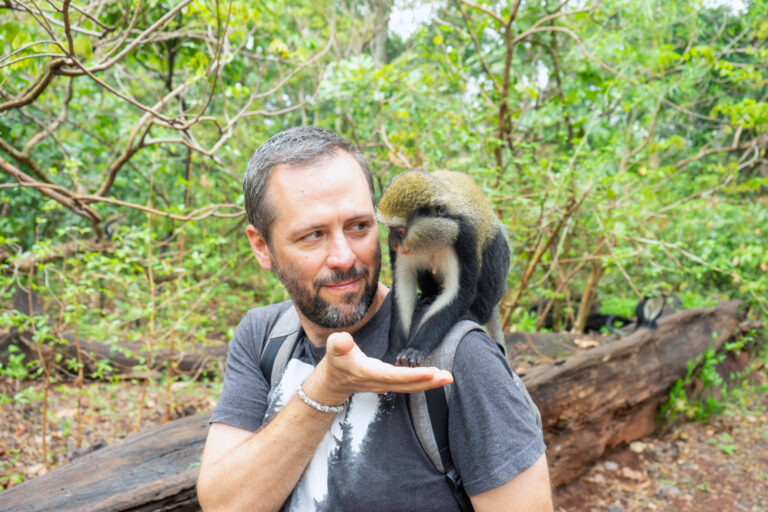
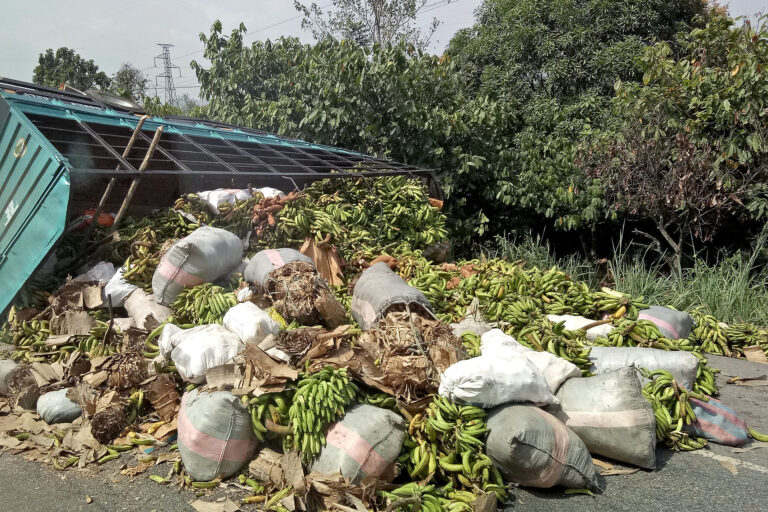

fresh palm wine is the best. it’s normally available early in the morning. by afternoon it has fermented even more. I never found a fresh one n Accra